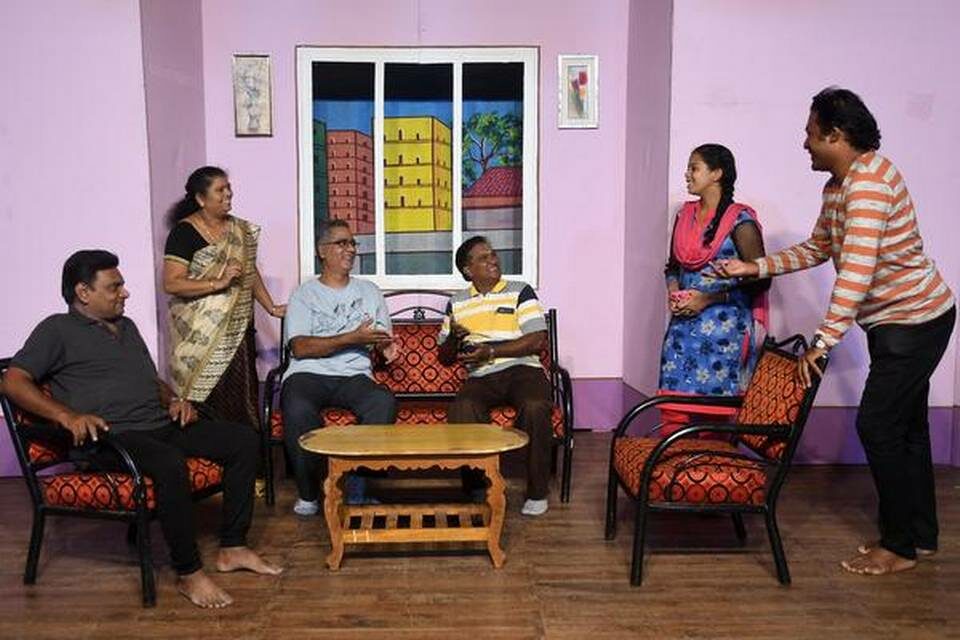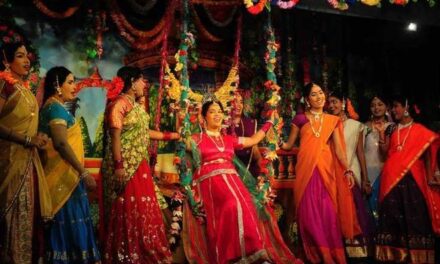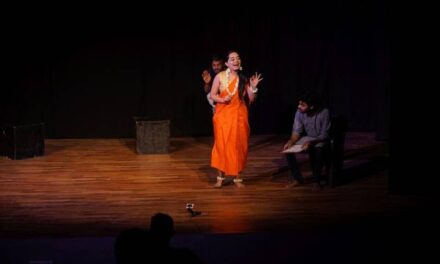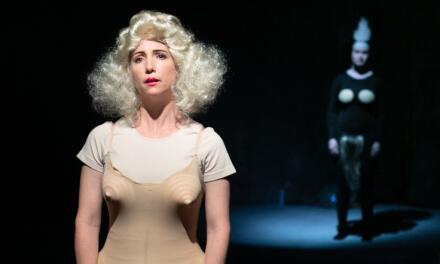What happens when an egoistic father of a middle-class family is brought down to earth? While the theme of Appa Version 2.0 is rather familiar, the treatment is refreshing. Not a surprise when you have K. Arunkumar as the writer of story and dialogue. Ravikumar accounts for the taut direction, which means little or no time wasted.
Known for his innovative ideas — Democrazy and A1 Vedhalam for instance — Arunkumar takes up a family issue for his canvas. Imagine an autocratic father (Arunkumar as Vaithi), meek mother and their two absolutely devoted sons. The father expects implicit obedience from the family and gets it too, ironically more because of affection than fear. The elder son has been ostracised for the simple reason that he married a girl of his choice. And the father’s demand for respect and obedience has no limit, slightest conflict making him break into a litany of woes.
Offsetting this tyrannical dad is Uncle Parasu — animated performance by Ravikumar — who lives in a senior citizens’ home, left there by his NRI son. “I lead a lonely life as my son doesn’t care (stricken with illness, poor Parasu has to fend for himself, the son content with transferring cash to the hospital’s account) when your wife and sons treat your wish as a command. What are you complaining about?” — Parasu chides his friend, who never gets off his high horse.
Interesting twist
The plot thickens when younger son Maali reveals that he is in love with a girl, his colleague, and wants to marry her. “Over my dead body,” predictably roars Vaithi and the son subsides. A kind Parasu, however, stages a charade in which Vaithi ‘selects’ Maali’s sweetheart as his daughter-in-law. It is smooth sailing until the bold bride rocks the boat by telling her father-in-law that after all, she was his son’s lover.
“It was a trick I had to play because I had to help Maali. Anyway, you ‘chose’ her,” Parasu tries to pacify Vaithi but in vain. The daughter-in-law falls out of favor. One thing leads to another and she walks out. His ego punctured, the senior disappears too. The end, however, is positive with everyone smiling, all wrinkles ironed out. The twist keeps the interest alive.
Good acting and sharp lines are the strengths of this play. Arunkumar is casually correct in his portrait of the arrogant father. Karpagam is an apt foil and will be more natural with fewer tears. Anand as Mahadevan does a neat job but should shed that self-conscious demeanor. Well, Vignesh Chellappan’s Maali would be a father’s pride, wife’s bane. Malini represents the confident young woman of her generation.
The lingo being familiar, delivery is a breeze for the actors, but the flavor a tad strong, given that these days, it has become diluted, especially among the youth. Lighting by Kalaivanar Kicha is unobtrusive. The script does not demand more than two simple sets from Padma Stage Kannan, done without clutter. Music is by Balakumar and make-up Perambur Kumar. The supervisory direction is by Arunkumar for this play, produced by Raja Mathangi Creations.
This article was originally posted by TheHindu.com on June 6, 2019. Reposted with permission. Read the original here
This post was written by the author in their personal capacity.The opinions expressed in this article are the author’s own and do not reflect the view of The Theatre Times, their staff or collaborators.
This post was written by Geetha Venkataramanan.
The views expressed here belong to the author and do not necessarily reflect our views and opinions.

















